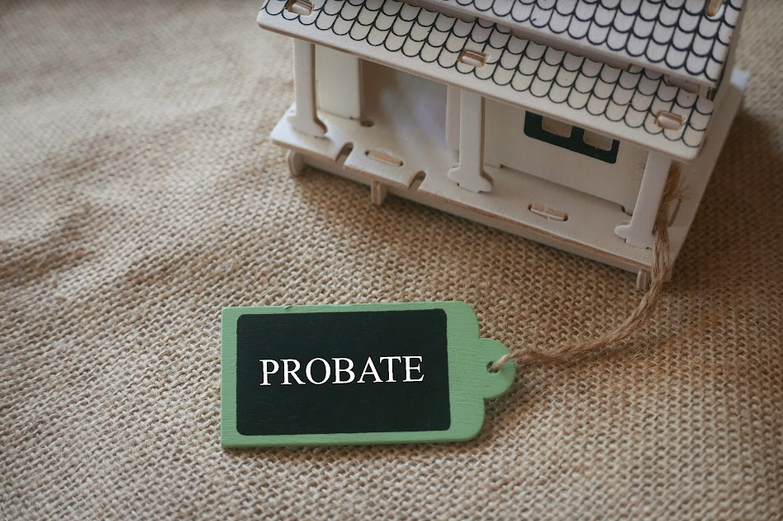Time and again, probate real estate has proven to be among the best strategies to acquire property. Investors investing in probate properties find attractive deals that are hard to resist. Nevertheless, it’s vital to note that acquiring a property through probate differs from what typical investors are used to.
Probate selling and buying involve a unique process, and it would help if you learn and understand it before getting involved in it. To learn more about the whole process and everything it involves, here are essential things to know about probate real estate.
1. What’s Probate Real Estate?
Real estate probate is a legal process whereby the ownership of the deceased’s properties is transferred to someone else or sold. It can also be defined as processing the decedent’s will in a probate court.
During this process, if the property is to be sold, the estate’s Executor finds an ideal real estate agent to market the property, as with other sales. Nevertheless, the probate court oversees the process, and some guidelines must be adhered to.
2. Why Does A Probate Sale Occur?
Probate sales occur if the deceased died before writing a will. Also, this kind of sale may occur if the deceased wished to sell their properties. On the other hand, if the estate has debts, probate sales are held to generate funds to pay them off. Generally, probate sales are held to convert assets into funds later divided among the lenders and the deceased’s beneficiary.
3. Probate Real Estate In Four Steps
The probate real estate process might seem confusing between legal documents and court proceedings. However, probate properties follow a regular course. Generally, there are four steps to ensure the probate process runs smoothly. Nevertheless, the proceedings might vary from one state to another. To understand more about the four steps of a probate process, you may want to continue reading:
- Real Estate Executor: The real estate executor must be appointed for the probate process to commence. Usually, the deceased names the Executor in their will. However, if they aren’t named, the court has the right to appoint an Administrator to perform the duty. The will indicates whether the heirs inherit the property or if it is to be sold.
- The Property Appraisal: If the property is for sale, the Executor develops a listing price for the property. The price is determined following an appraisal with the aid of an experienced real estate agent who’s familiar with probate sales.
- Property Listing: After establishing the listing price, the property is placed on the market. Using websites, signage, and other platforms, the real estate agent markets the property like any other to attract more potential buyers.
- Approval And Sale: After the offer is submitted, the real estate agent negotiates the terms to satisfy each party. Afterward, an official notice is mailed to the estate’s beneficiaries, giving them 15 days to object to the property’s sale. If the heirs have no objection to the sale, a court day is scheduled where the property’s sale will be officially executed.
4. How’s The Sale Handled In The Probate Court Process?
The buyer makes an offer on the probate sale property to the seller, who’s most likely to be the estate Executor. They then pay a 10% deposit, which is an addition to the down payment of the estate. The executors might counter the offer and eventually accept. But this doesn’t mean that the sale is complete. Also, the executor must petition the probate court to approve the sale.
In some states, the probate courts allow other individuals interested in the property to attend the sale confirmation or bid, even if a particular buyer has made an offer. The property is then auctioned off. If the first buyer or bidder doesn’t win the auction, they’re entitled to get their 10% deposit back. Nevertheless, if they win the auction, they might not be refunded.

5. Should You Buy A Probate Sale?
Probate sales aren’t a better option for everyone. Before starting a probate sale process, you should first evaluate whether you need to get a good or quick deal. Many probate properties sell at a low value, but the process might take longer than traditional property purchases.
Also, it would be best if you first considered the cost of renovations and repairs when buying a probate property. If you can afford a professional or do the repairs yourself, probate sales are ideal for finding affordable properties. Most home investors often use probate sales to find cheap properties, renovate them, and sell them at a higher price.
Unfortunately, if you can’t afford a professional or can’t have the time to improve the property’s state, probate might not be the best deal for you. Property in probate includes many unknowns. As a buyer, you might know only a bit about a particular property when buying it through a probate sale. Even with inspections, you might end up paying for a property with defaults that might require hundreds or thousands of dollars to repair. Before deciding whether to purchase a property on probate sale or not, determine if the advantages outweigh the disadvantages and then make your move.
6. How Long Does Probate Take?
Typically, the probate process can last from a few months to a year, given that there are various assets and property laws to follow. Nevertheless, some processes might take up to two years.
How long probate process takes can be affected by various factors. For instance, the number of heirs, taxes or debts attached to the property, or issues with the execution of the will can affect the period the process will take. Also, local and state laws where the property is located can impact the process duration. Generally, different legal proceedings linked to probate can affect the processing time.
That said, it’s important to note that some probate processes can take as little as six months. Investors familiar with probate properties understand that the process can take a few months, but a will can prolong the period. This is because the will indicates that the property is already assigned to a specific heir.
7. How To Avoid Probate
To avoid probate, homeowners can put their properties into a revocable living trust. A revocable living trust is a notarized and signed written document determining who receives what when the property owner dies. Also, the property owner must develop a trust document and then transfer certain assets to the said trust.
While it isn’t a must to develop a living trust just because you own properties, it can be helpful later after your demise when sharing your properties. You don’t require a lawyer when creating trust, but legal advice can be helpful as you navigate the process. When done correctly, revocable living trusts are helpful to property owners as they prevent probate court processes after death.
8. Are There Legal Concerns Or Risks With Probate Sales?
Probate properties are often listed at low prices. This might be because most probate properties aren’t fixed before the sale the way property owners prepare property before the sale. Since the home is sold following the owner’s death, the property might not have been prepared for the sale. Therefore, the executor is likely to lower the property’s price to attract more buyers.
Additionally, in the absence of the property’s owner, there’s no one to disclose every defect. Therefore, buyers aren’t sure about what they’re taking on. Following this, potential buyers will require early property inspection to know more, even if they might not buy it.
Investors of probate real estate should understand the difference between a traditional property sale and a property sale handled by the probate court. When interested in probate property, you must put down a 10% deposit upfront. Also, it’s essential to understand that probate courts might move slowly before the end of the sale process. Remember, it’s quicker to purchase a property regularly than through probate court.
9. Do You Require A Probate Sale Lawyer?
Settling a property that involves probate court is a complex process. There are legal factors, tax, and financial considerations. Fortunately, a reputable estate lawyer can ensure the smooth running of the process and ensure the probate sale property attains its maximum value. You may also want to hire an experienced estate lawyer to advise you in case of any questions or disputes regarding your state’s laws.
Conclusion
Probate real estate involves selling the deceased properties to share the amount raised among the heirs or pay debts attached to the property. Probate real estate can help one get an ideal property at a lower price since the properties are listed at a low price to attract more buyers, which might be suitable for investors looking forward to investing less for more.
However, probate real estate isn’t a quick fix for those looking forward to owning properties. It isn’t also for those selling the property either. It requires time and patience to get an ideal asset or buyer. Also, the process might take a long time depending on the legal issues linked to the property.
Related Posts











